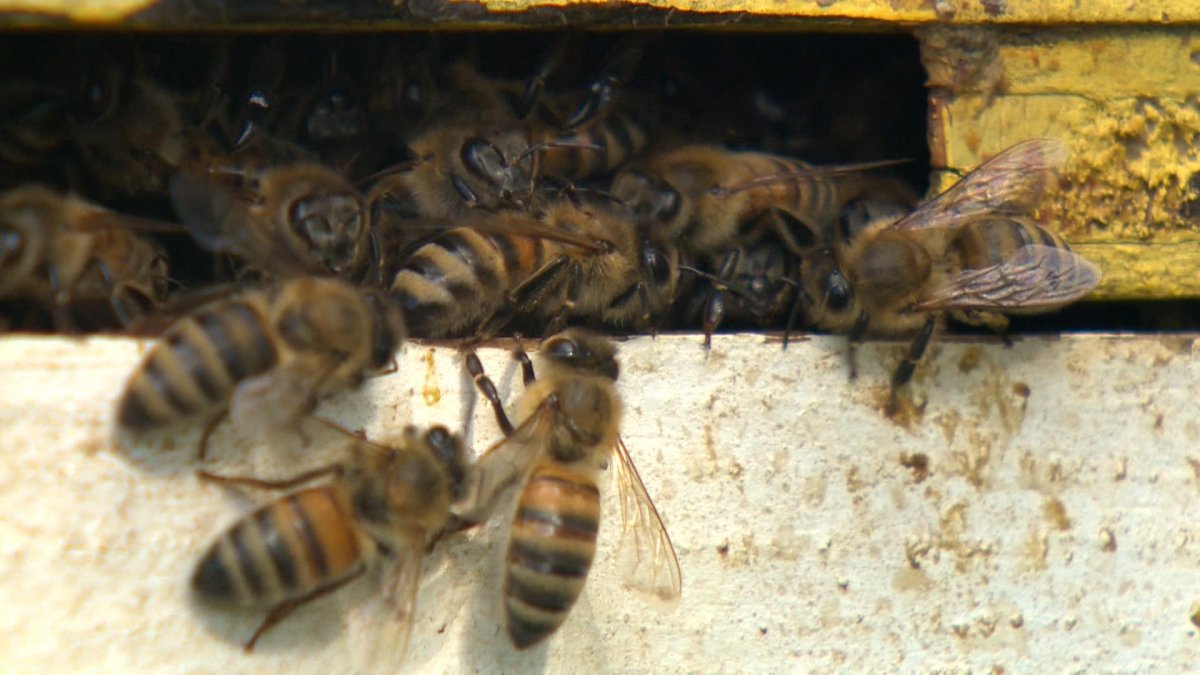Manitoban beekeeper Bob Podolsky had to move his hives to B.C. to keep them safe this winter as this time of year is getting harder and harder.

He told 680 CJOB he has already lost 90 per cent of his bee population due to the cold weather Manitoba has to offer.
“Thirty-five years ago, it wasn’t too bad; you could have a 30 per cent failure rate only. But now we’re experiencing much higher failure rates,” he said.
Podolsky said he made a deal with a producer in B.C. who raises bees to sell to people in the Prairies.
“So he’s not after the honey production. He is after making increases, selling these increases to people like me. And then his bees. What is left in the springtime, he sells them to us in May.
“He builds them up to make them strong enough to make the winter again and repeats the whole process the following year.“
He said it is not normal for him to have to move his hives out of the province but the longevity of Manitoba winters is causing bees to have very little fly time.
“So their flying season ends right around Halloween and then they don’t start flying till early April.”
With the bees being moved to a much warmer climate, they can fly in the middle to the end of November, which is important as bees only defecate when they fly.
“They’ll start flying again and the end of February or beginning of March, so you’ve shortened the window of the no-fly time,” Podolsky said.
Podolsky has installed cameras so he can monitor his bees and he said they are already flying around.
Another issue facing the beekeeping industry is honey production as the price of honey has been really damaged by artificial products coming in.
“The United States imports 60 per cent of their product, and a huge portion is not authentic honey. So that hampers us.” Podolsky said.









Comments